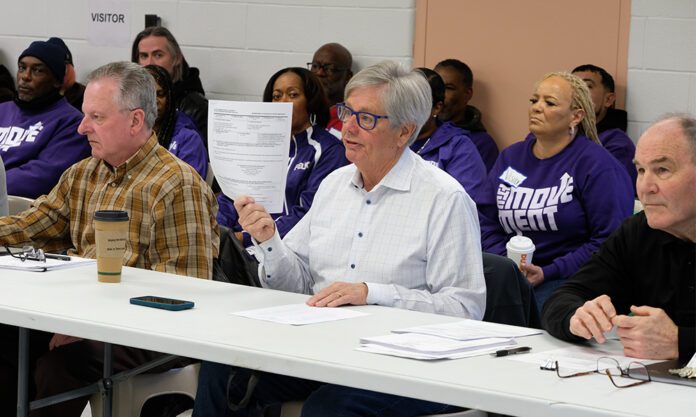Local officials, citizens voice their concerns
STRYKER – With arms crossed in silent defiance, Baldemar Velásquez watched what he called a “pretty shameful display of anti-democracy” as eight of the 10 Correction Center of Northwest Ohio (CCNO) board members voted “yes” on a proposed contract agreement with ICE (U.S. Immigration and Customs Enforcement).
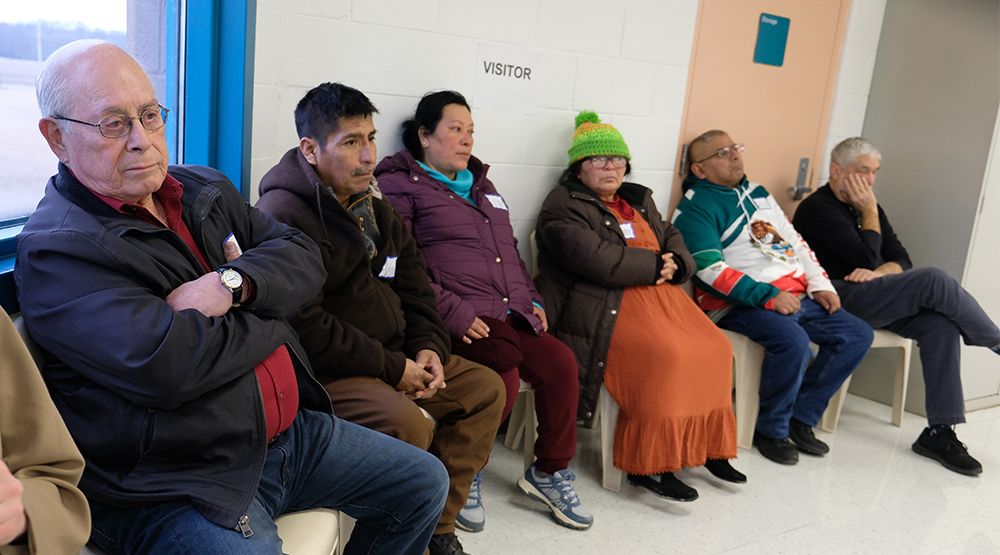
The contract, in negotiations since August 2023, allows federal authorities to arrest and detail people who are in the country illegally and house them at CCNO.
Following the contract approval, Velasquez, president of FLOC (Farm Labor Organizing Committee), said he attended the meeting in hopes of explaining to the board what actually happens during raids, what really happens to families, and the trauma caused to the children.
But he never got the chance to speak. The board denied Lucas County commissioner and board member Pete Gerken’s last-minute request to amend a policy that requires a five-day written notice to allow public comment.
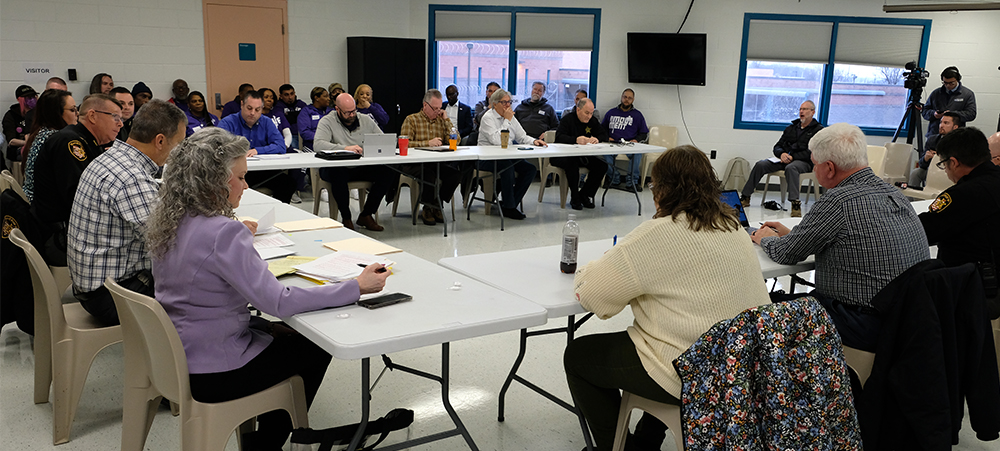
“I wanted to speak to the issue that Sheriff (Mike) Navarre eloquently spoke of today, and that’s the consequences it’ll have on our community and families we work with in northwest Ohio … all of the immigrant people,” Velasquez said. “But apparently they’re cold hearted and didn’t want to hear anything other than the 30 pieces of silver thrown at them by the federal immigration authorities. I think America has turned into a Gestapo nation.”
Velasquez said he wasn’t surprised by the vote because he’s no stranger to northwest Ohio. “I’ve organized migrant workers for over 50 years in the area and I know the attitudes and the way people are treated. We have worked in the agricultural sector in northwest Ohio for all these years to provide the food and vegetables Americans eat,” he said.
“This whole process right now, of Trump’s wrongheaded mass deportations that indiscriminately make people suffer … this is not what America is supposed to be,” he continued. “We’re gonna do our best to defend the people and insist they be given due process, and we’re going to insist they be treated like human beings, but more importantly, we object to the Gestapo tactics that will be used against our people.
“This cannot be the American that we want,” Velasquez said.
Details of the contract, outlined at the beginning of the meeting by CCNO executive director Dennis Sullivan, includes:
- a per diem rate of $117 per day per detainee
- the IRS mileage rate for transportation resources and officer wages, including overtime expenses
- the average length of stay will be approximately 40 to 45 days
- CCNO has the right to deny inmates who pose a security risk to the facility.

CCNO is an adult detention center that houses inmates from five counties (Defiance, Fulton, Henry, Williams and Lucas), and the 10-member CCNO board is made up of commissioners and sheriffs from each of those counties.
Sullivan said there was no political agenda, and that his operating agreement requires him to go out and fill unreserved beds, or at least bring recommendations to the board and then the board makes the the final decision.
“That’s what we’ve done for the last 30 years,” he said. “We’ve had a lot of contracts that the board has approved over the years to fill unreserved beds, and again, that’s their decision. It’s my responsibility to attempt to fill beds and that’s what I’m trying to do.”
As for the language barrier, Sullivan said each inmate gets a tablet with multiple languages installed. The laptops are used for medical requests, grievances and complaints.
“The tablet converts the requests into the language they need, and that’s very, very helpful,” Sullivan said. The officers also carry RFID radios during rounds, which helps with translation.
In attendance and representing Lucas County were board members Sheriff Mike Navarre and Gerken, who both voiced their opposition to the contract before casting their “no” votes.
In his plea to the board, Gerken said he thought they had a diligence as a board to go a little deeper into the contract. He said he was concerned about accepting non-local detainees; the language barrier between the staff and detainees; mass sweeps that could include high-level criminals; and the denial of a hearing for undocumented immigrants.
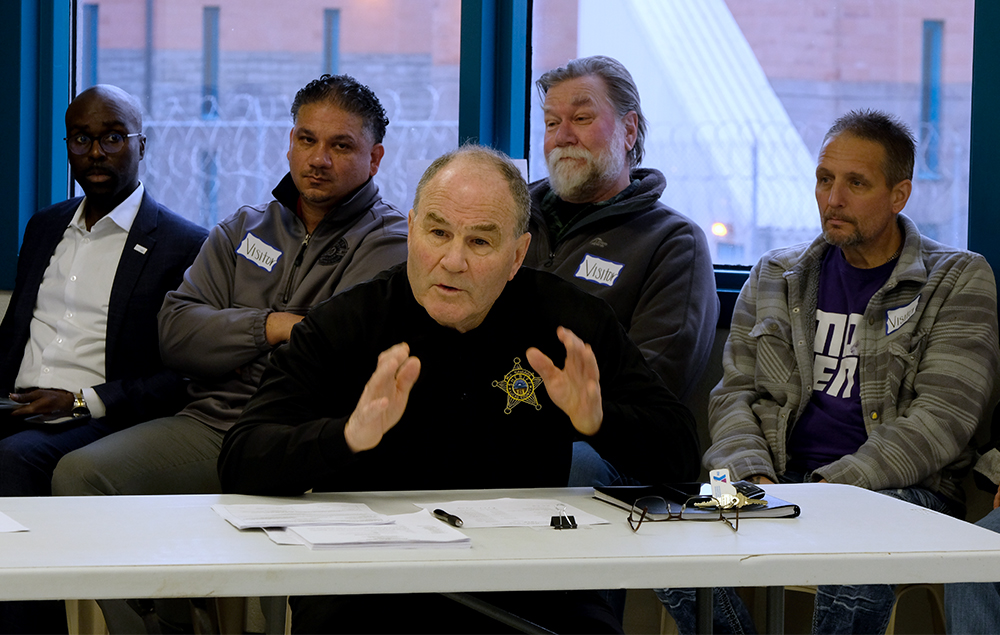
But Navarre was more direct and personal with his opposition. He started out by acknowledging his appreciation for how Sullivan is running the jail like a business. He added that while the business decision of charging $117 a day was very enticing, it also means the jail will become a temporary holding location for mass deportation, “and I’m opposed to mass deportation for one simple reason: Mass deportation equates to mass family separation.
“I don’t go to church as often as my wife, but I know right from wrong,” he told the board. “We’re destroying families by deporting parents of children who are here legally. The federal government created this problem and they have not offered a solution yet, and that’s what I’m waiting for.”
I applaud you for making a business decision; it makes perfect sense from a business standpoint, but this is one business decision I’m gonna vote ‘no’ on because I can’t, in all good conscience, vote for something that is going to separate parents from their children.
Lucas County Sheriff Mike Navarre
After the vote was called, Gerken walked out of the meeting with about 25 other people who opposed the contract.
When asked why he voted no, Gerken said it was “because this is probably one of the most reprehensible votes I’ve ever seen at CCNO. This is a well-run institution that’s made for five counties, and the local people here we have no business getting ourselves tangled up horrible mass deportations.
“I think sheriff Navarre said it very well: We have now voted to be in the business for profit. We have voted to be in the business of separation of families,” he said.
According to ICE’s website, the mission of ERO (Enforcement and Removal Operations) is to “work with law enforcement partners in the shared responsibility for ensuring the safety of our communities through a variety resources and programs. The 287(g) program enables a state or local law enforcement entity to receive delegated authority, training, and technology resources for immigration enforcement within their jurisdictions.”
But Tony Totty, UAW 14 president and a member of FLOC, said what they’re actually doing “is making orphans.”
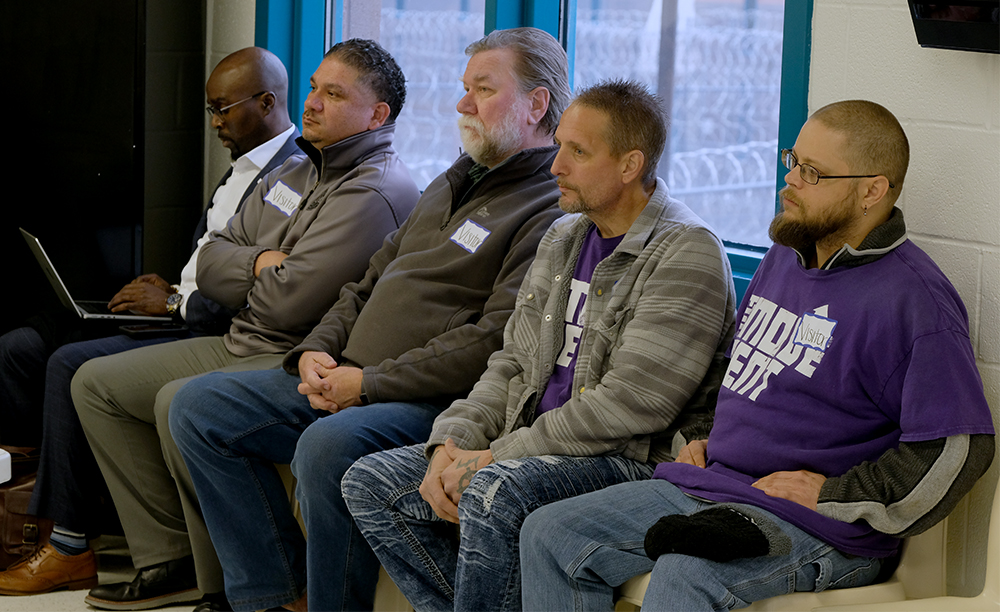
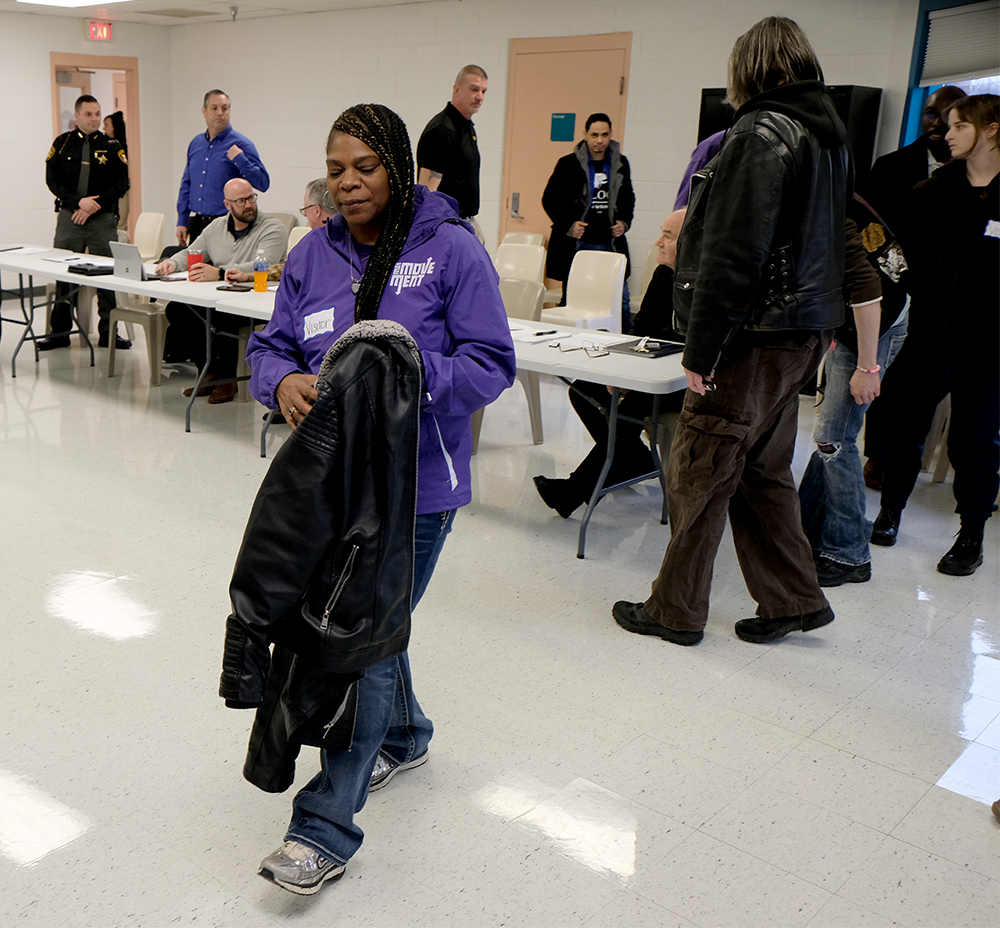
Totty walked out of the meeting with Gerken, Velesquez and members of The Movement.
“What’s so upsetting about this process is they didn’t let the people in the room speak,” he said. “Their minds were already made-up before the vote took place, and I think they were very short sighted. It would have been nice to speak what’s on our minds and our hearts to this issue.
“They’re using our tax dollars that we provide to this place to become a for-profit prison, and that’s not what our neighbors want, so we’ll see what goes forward and how this transpires,” he added. “Hopefully, there’ll be a change of heart, but we shouldn’t be a part of this circus.”
Totty said his union’s core principle is “we fight for others, not just ourselves, and this is one of those moments.
“We provide safety nets in our community for people, and now that this is going to take place,” he said as he pointed to the building behind him where the board was still holding its meeting, “that safety net will be needed even more to support families that are going to lose family members.”


